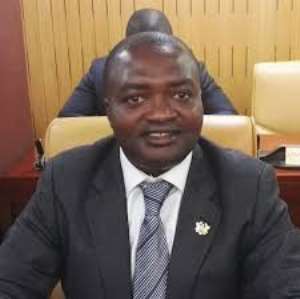
Dr Emmanuel Marfo, Member of Parliament (MP) for Oforikrom, has called for the establishment of a high-level inter-ministerial task force to see to the full implementation of the Mental Health Act.
He expressed concern about the situation where mental healthcare appeared to have been pushed to the back-burner.
He said there was the need to focus priority on mental health - it should become one of the priorities on the national development agenda.
Dr. Marfo in a statement made in Parliament said this was necessary amid the caution by experts that mental illness was surging.
There were many mentally-ill persons than we knew and many recent cases being reported in the news should give Ghanaians cause to worry.
He urged increased budgetary allocation and spending on mental health as well as sanctions against non-professional centres providing services for treatment of mental illness.
He suggested that the nation instituted a system of periodic mental health check-ups, especially among the working force.
Additionally, resources and support should be given to civil organisations to embark on aggressive nation-wide awareness creation, particularly in schools, market places, churches and mosques to aid everybody to have better understanding of the causes, dangers and treatment of mental illness.
Known causes included depression arising out of difficulties in relationships and harsh economic conditions, drug abuse, genetic factors, road traffic accidents, constriction during delivery, infection of the foetus during pregnancy and general health conditions such as tumour in the brain, hypertension and dementia.
He refered to findings of a study conducted in 2011, which showed that when Ghana's population was about 25 million, about 2.4 million people suffered from one form of mental illness or the other and only three percent of them received treatment, leaving a treatment gap of about 97 percent.
Dr Marfo identified the main challenges to mental healthcare in the country as inadequate financial resources and skilled specialised personnel.
He said although Ghana had a long established service with staff working in outpatient departments and hospitals, government's spending on mental health was 'very low' and the bulk of services, centred around the capital city leaving the rest of country with almost no provision.
It was therefore not surprising that traditional healers, shrines, churches and prayers camps had become the preferred choice for many, especially in rural areas.
Dr Marfo warned that the debilitating consequences of not paying attention to mental health could be far reaching than could be imagined. It could have dire implications for the economy.




 Lay KPMG audit report on SML-GRA contract before Parliament – Isaac Adongo tells...
Lay KPMG audit report on SML-GRA contract before Parliament – Isaac Adongo tells...
 Supervisor remanded for stabbing businessman with broken bottle and screwdriver
Supervisor remanded for stabbing businessman with broken bottle and screwdriver
 NDC watching EC and NPP closely on Returning Officer recruitment — Omane Boamah
NDC watching EC and NPP closely on Returning Officer recruitment — Omane Boamah
 Your decision to contest for president again is pathetic – Annoh-Dompreh blasts ...
Your decision to contest for president again is pathetic – Annoh-Dompreh blasts ...
 Election 2024: Security agencies ready to keep peace and secure the country — IG...
Election 2024: Security agencies ready to keep peace and secure the country — IG...
 People no longer place value in public basic schools; new uniforms, painting wil...
People no longer place value in public basic schools; new uniforms, painting wil...
 'Comedian' Paul Adom Otchere needs help – Sulemana Braimah
'Comedian' Paul Adom Otchere needs help – Sulemana Braimah
 Ejisu by-election: Only 33% of voters can be swayed by inducement — Global InfoA...
Ejisu by-election: Only 33% of voters can be swayed by inducement — Global InfoA...
 Minority will expose the beneficial owners of SML, recover funds paid to company...
Minority will expose the beneficial owners of SML, recover funds paid to company...
 Prof. Opoku-Agyemang has ‘decapitated’ the NPP’s strategies; don’t take them ser...
Prof. Opoku-Agyemang has ‘decapitated’ the NPP’s strategies; don’t take them ser...
